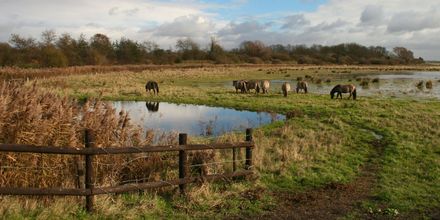Helping to build the capacity, knowledge and skills of key actors in the field of agri-environmental policy is an important dimension of IEEP’s work. In relation to agriculture and land management policy we do this by holding events, facilitating workshops, producing guidance and providing bespoke training on a range of environmental issues relating to agricultural land management. We also provide advice to a range of stakeholders and other actors in the UK and other Member States on the EU dimension of agricultural policy, EU institutions and processes and the broader debate on land as an environmental resource.
Our output has reached all 28 Member States with guidance documents produced for public bodies, NGOs and European institutions. We have supported the mainstreaming of climate, biodiversity and other environmental issues within the CAP. Over the years, a central element of our advice and capacity building role has involved working with EU Accession and Candidate countries, helping to build institutional capacity and sharing EU policy expertise to inform the development, design and subsequent implementation of their agri-environment programmes. Since 2000 we have undertaken capacity building projects in most of the Member States prior to their accession to the EU in 2004 and 2007. More recently we have carried out similar projects in Serbia, Macedonia, Turkey and Croatia.
Through our CAP2020 web-site we promote informed and independent analysis and commentary on the CAP. We aim to engender an active debate and exchange of information on CAP implementation and the ways in which the CAP needs to be reformed post 2020.

